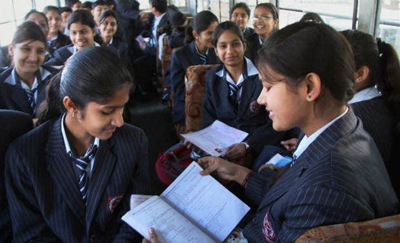 London, Sep 11: Not a single Indian university is among the world's top 200, according to a new global ranking.
London, Sep 11: Not a single Indian university is among the world's top 200, according to a new global ranking.
The QS World University Rankings published on Tuesday has miserable news for India's education system. Around 11 Indian institutes feature in the top 800 of the global list with the highest ranking going to IIT Delhi which is placed 222 in the list.
Two other made it to the top 300—IIT Bombay (233) and IIT Kanpur (295). IIT Madras is ranked 313 while IIT Kharagpur stands at 346.
A close scrutiny on the ranking has more bad news for India. Even though the IITs figure in the list of the world's top 800 institutes, majority of them have actually fallen in ranking in 2013 as compared to their standing in 2012.
IIT Delhi for example was 212th best in 2012 but fell to 222 in 2013. Similar is the story with IIT Bombay which fell from 227 to 233, IIT Kanpur falls from 278 to 295, IIT Madras from 312 to 313. IIT Kharagpur is the only Indian institute that has gained ranking from in 349 in 2012 to 346 in 2013.
The other Indian institutes to make it to the top 800 list includes IIT Rourkee (401), Delhi University (441), IIT Guwahati and Mumbai University both at (601) with University of Pune and Kolkata at 701.
Globally, MIT tops the table for the second year in a row, followed by Harvard and Cambridge.
The best-performing countries in terms of number of universities ranked were the US (144), UK (69), Germany (42), France (40) and Japan (38).
The rankings say: "In India, five Indian Institutes of Technology are the country's only representatives in the top 400".
The QS World University Rankings are based on four key pillars—research, teaching, employability and internationalization. The methodology consists of six indicators: academic reputation (40%), employer reputation (10%), and faculty student ratio (20%), citations per faculty (20%), international students (5%) and international faculty (5%).
This year sees the most comprehensive QS World University Rankings ever as over 100 universities are added, making it an 800-strong list with 76 countries represented. The rankings took into account 62,094 academic and 27,957 employer responses, making both surveys the largest of their kind in the world.








Comments
Add new comment